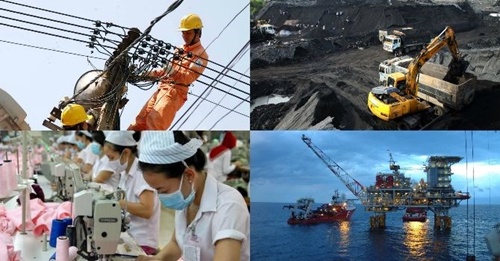
It is necessary to tweak the criteria for classification of State-owned enterprises (SOEs) to speed up their equitisation and improve their efficiency, a workshop in Ha Noi on August 28 heard.
It is necessary to tweak the criteria for classification of State-owned enterprises (SOEs) to speed up their equitisation and improve their efficiency, a workshop in Ha Noi on August 28 heard.
The workshop was organised by the Ministry of Planning and Investment to discuss the draft of a proposal on amending the criteria for classification of SOEs.
 |
| New criteria for classification of SOEs will be issued to help speed up equitisation. |
Le Manh Hung, deputy head of the Ministry of Planning and Investment's business development department, said the approved road map for SOE restructure requires 479 enterprises to be equitised in 2014-15.
But only 251 have been, meaning the number remaining to be sold or equitised in the next few months is very large, he said.
Creating new criteria is also key to meeting the changed circumstances related to restructuring and renovating SOEs, he said.
The draft decision requires the Government to own 100 per cent stakes in companies only in 14 sectors and industries, down from the current 16.
They include defence and security; production and distribution of industrial explosives and toxic chemicals; the national power grid; nuclear power plants and hydropower plants of exceeding importance for socio-economic development or related to defence and security; management of rail infrastructure and transport; flight protection; maritime protection; post and telecommunications; lottery; publishing; and preferential loans for socio-economic development.
The two areas that go out of the list are management and protection of watershed forests, protective forests and special forests, and enterprises that hold business secrets and technological secrets, which will now be governed by other legal provisions.
In other stipulations in the draft, the Government should own 65 per cent of enterprises in sectors related to key infrastructure that impact socio-economic development (major ports, airports and telecom) and natural resources (minerals, petroleum) and those with the task of ensuring great balance of the economy and stabilising the market (food, fuel, gas, and electricity).
It should also own more than 50 per cent but less than 65 per cent of enterprises mainly engaged in providing public services and goods -- like urban drainage, environmental sanitation, urban lighting, oil and gas processing, and finance and banking (exclusive of insurance, securities and fund management companies, finance companies, and financial leasing companies).
The draft will soon be submitted to the Government for approval and is expected to take effect later this year.
(Source:VNS)





